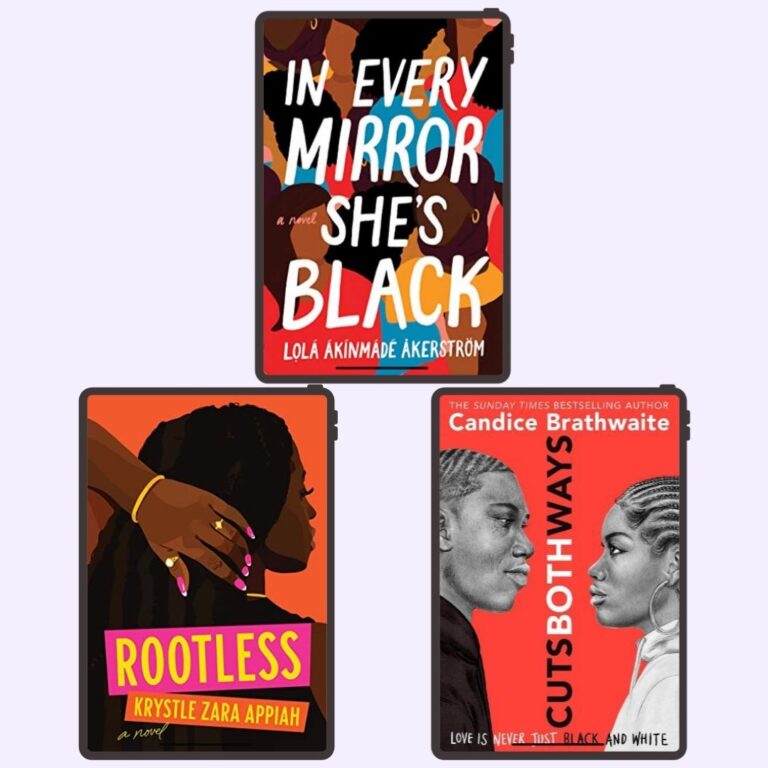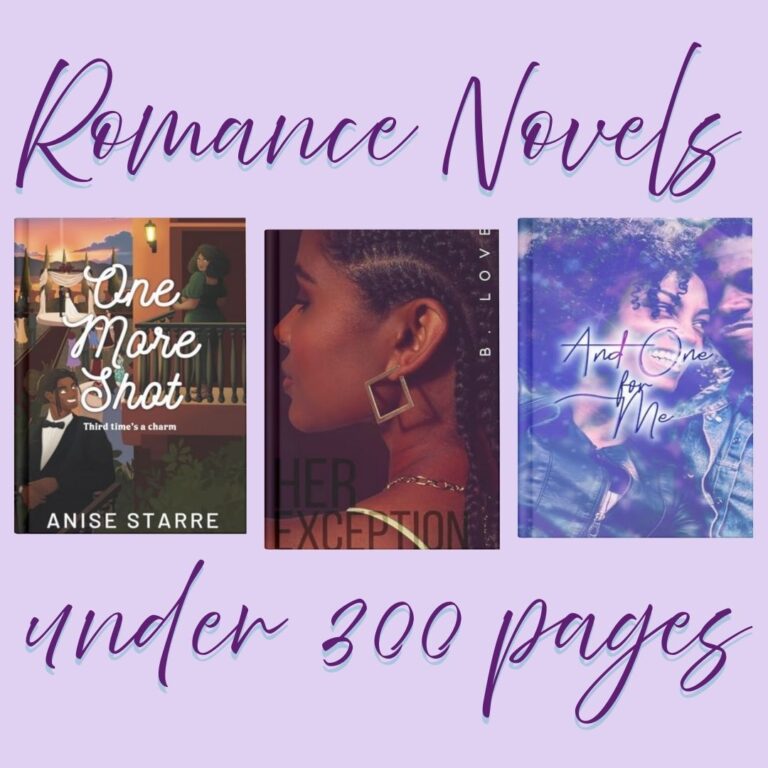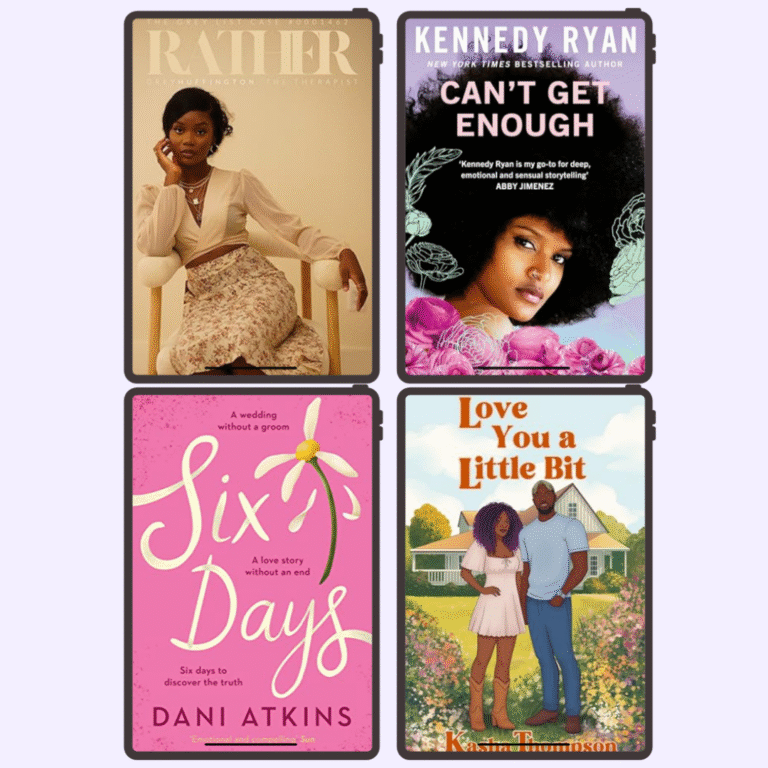Little Rot by Akwaeke Emezi
Genre: Queer Nigerian Literary Fiction | Thriller | Published: 2024
I briefly mentioned Akwaeke Emezi on this blog while outlining Nigerian authors. Back then, I mentioned that although their writing ability and command of narrative are undeniable, I struggled to connect with the content of their work. Still, I decided to give Little Rot a try, even after DNFing You Made a Fool of Death with Your Beauty, because I told myself one book wasn’t enough to discount an author entirely.
I read Little Rot in a few hours while in Nigeria, and when I finished, I just sat there thinking: what in the actual hell was that? I’m not a stranger to visceral, unsettling prose or books designed to elicit intense discomfort. Not every story is meant to soothe; as long as it makes you feel something, it has value. But with Little Rot, I simply couldn’t get behind it.
Emezi does something I consider an absolute taboo in literary fiction: they sensationalise real, profound suffering for shock value. Little Rot leans so heavily on sensationalism that the lived realities it gestures toward are diminished, reduced to spectacle rather than lived experience.
What should have been bold and unsettling ends up feeling like cheap shock tactics—soapy, shallow, and hollow at its core.
I usually don’t post immediate reviews on Goodreads or Fable; I like to give myself time to settle into my thoughts. The exception is when a book leaves me with such strong feelings I can’t hold back. Little Rot was one of those cases.
The minute I finished it, this was my raw reaction:
Outside of the incredibly sexual nature and abusive content, Little Rot was disjointed, the plot all over the place – characters with no clear arcs, a storyline with promise but horrendous execution. Just horrendousness and sexual abuse.
Me
I Gave Akwaeke a second chance And I’m twice as disappointed…. Idk wtf Little Rot even is. They will not be getting a 3rd chance.
Dramatic, I know…But I plan to expand on those first impressions.
Synopsis
Little Rot by Akwaeke Emezi plunges you into New Lagos’s elite underbelly over one harrowing weekend. Aima and Kalu, fresh from a breakup, spiral through separate dives into decadence – her into elite nightlife, him into an exclusive sex party hosted by a trusted friend. But what begins as escapism detonates into a spiral of sex, lies, and corruption that entangles not just them but two visiting sex workers in a brutal collision with the city’s darkest forces.
Disordered
Aima and Kalu’s story had the potential to be genuinely compelling. The breakdown of their relationship, the secrets they carry, and the contrast between who Aima was at the beginning of their relationship – when they are away from family and pressure – and who she becomes (or truly was) at the end could have laid the foundation for a raw narrative. But instead, there’s almost no story there. They break up, and fine, maybe their relationship wasn’t meant to be the centrepiece, but what we got in its place doesn’t work. The little foundation we have quickly disintegrates under the weight of clichés, character actions that make no sense, or serve only the plot.
A plot-driven story doesn’t always require deep character development, but here we’re given so little that it’s impossible to attribute any meaningful traits or motivations to explain character actions. In a narrative so concerned with “rotten” behaviour and moral decay, isn’t some kind of character arc essential?
I believe that Emezi meant to illustrate how easily people can slide into depravity, sometimes almost against their better judgment, but the execution falls flat. None of the characters are afforded the chance to unpack the consequences of their choices. That wouldn’t necessarily be a weakness in a different type of narrative, but again, in a book like this, one that depends so heavily on character and the fallout of their actions, it makes it nearly impossible to believe in anyone.
Take Aima, for example. If the version of her we were given earlier in the book was consistent, her choice at the end makes little sense. Character development is absent throughout, but then the story abruptly changes a defining characteristic with no foundation for it. If you aren’t going to develop a character, don’t undermine a core trait at the very end; it only highlights inconsistency.
On top of that, the novel takes place over a very short period (a weekend), and so much happens. While the stories are all meant to be interconnected, the sheer volume of events makes it feel chaotic and disjointed. We’re constantly yanked from scene to scene as though Emezi were racing to get everything onto the page. Although high pace could have worked given the two-day timeframe, instead of tension, it just comes across as rushed.
The story was far too ambitious for such a short book, and so much more could have been done. Akwaeke Emezi could have gone so much further.
Disturbing
Little Rot is thematically intense, and the “rot” in question is not shied away from in the slightest. Emezi wants us to feel every horrid aspect of society and to unravel emotionally alongside the characters. I was unsettled almost the entire way through.
Much of that comes from the sex; there is a lot of it, and much of it is deeply disturbing. I’m no prude, and very little unsettles me in fiction, but here it’s obvious we are meant to be uncomfortable. If you’re not, honestly, that’s something to reflect on. Still, the sheer volume of explicit detail becomes excessive. There are too many scenes where it isn’t narratively necessary, and given the abusive nature of much of the sex, it ends up feeling less like a deliberate device and more like shock for shock’s sake.
Though I’m keeping this review spoiler-free, I will note that there are multiple instances of sexual abuse of a minor. Of course, this is a reality in the world, especially in contexts involving sex work, and young girls often don’t recognise the severity of what’s happening to them or believe they have full autonomy in such relationships. But the novel doesn’t present that nuance. As a reader who has thought deeply about the subject, I could bring that layer of analysis to the text myself, but the book itself didn’t suggest it. There’s usually an undertone in such stories that asks us to read between the lines. Here, though, the depravity felt disturbingly unexamined, at times even normalised or explained away.
Emezi’s Craft
Emezi themselves describe this book as chaotic, and I want to believe the structural fragmentation and narrative shifts were meant to mirror the instability of the novel’s world and its characters. But in practice, it falls flat and misses the mark.
I may be critical, but I’m not unnecessarily contrarian, and I would never deny Emezi’s talent. They are a literary mastermind, capable of prose that is lyrical, almost poetic, and discomforting in deliberate ways. Even when their work is harsh or overt, it’s usually purposeful. That said, Little Rot falters in its execution. The messaging ends up feeling obvious, and what could have been a deep, insightful narrative with powerful takeaways instead comes across as merely “edgy”, and I don’t mean that in a positive sense.
As a Nigerian reader, I was excited to encounter this level of queer representation – it’s still rare in our cultural prose – and I desperately wanted to love it. At times, I even did. But considering how central sexual identity is to Emezi’s work, I found the representation here disappointingly shallow. “Queerbaiting” isn’t the right word, but that’s almost how it felt: more surface than substance. Aima and Ijendu’s relationship, which could have offered a genuine moment of release and self-acceptance against societal pressure, instead plays out like a casual hookup that doesn’t even align with Aima’s character.
By contrast, Ahmed and Kalu’s queerness was handled with far more nuance. Their story, particularly Ahmed’s, carried depth that spoke to his choices (if you read the book, you’ll understand why). Unfortunately, even that thread was left underdeveloped, a glimpse of what Little Rot could have been if it hadn’t gotten lost in its chaos.
Final Thoughts
If you do decide to read this book, please proceed with caution; there are simply not enough Trigger Warnings!
While undeniably a page-turner and a book I was deeply engrossed in, I can’t say I rate it highly. It’s unfortunate because Little Rot had so much potential. I did appreciate the recurring metaphor of “rot” and the way it was meant to erode the lives of the characters, but the narrative lacked the depth needed to truly drive that message home.
I had planned to set aside my frustrations and give Emezi another chance with Freshwater, but after reading the blurb, I realised I’d only be setting myself up. I know my reaction would likely be the same, and at this point, it feels best to step away from their work entirely.
I feel like I haven’t done a review of a book I’ve loved in a while, so maybe the next one. In the meantime, please do read all my other ones!
As always, thanks for being here.
Signed,








